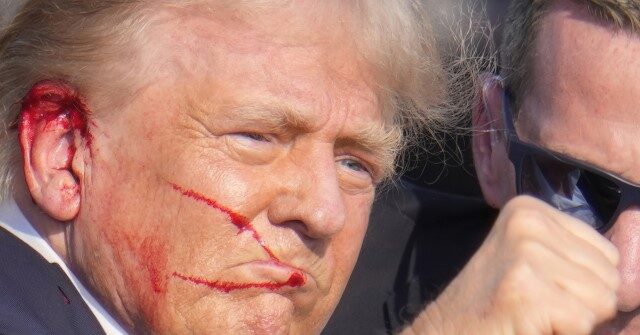Dmitry Medvedev, the deputy chair of the Russian Security Council and former president of Russia, recently made ominous remarks regarding the potential political future of Donald Trump should he succeed in halting the Ukraine war after the imminent U.S. presidential election. Medvedev suggested that Trump could face a tragic fate akin to that of John F. Kennedy, who was assassinated in 1963. He stated that the outcome of the election would not significantly alter U.S.-Russia relations because both major candidates had a consistent stance on the need to defeat Russia. Medvedev’s comments reflect the broader context of Russian narratives that depict Ukraine as governed by a “neo-Nazi dictatorship,” which has been a justifying rhetoric for Russia’s aggressive military actions against Ukraine that commenced in February 2022.
Medvedev dismissed Trump’s claims that he could bring an end to the Ukraine conflict soon after assuming office, arguing that any president would be bound by the established political system that controls U.S. foreign policy. He suggested that even if Trump were to attempt to mediate an end to the war, he would face substantial institutional barriers. According to Medvedev, the essential goal for any new U.S. president would be to secure funding for military efforts supporting Ukraine, which he disparagingly referred to as aligning with “Bandera scum,” a reference to the controversial Ukrainian nationalist leader viewed differently in Russia and Ukraine.
The tone of Medvedev’s commentary also extended to disparaging Trump’s likely opponent, Vice President Kamala Harris, whom he characterized as “stupid” and “inexperienced.” Medvedev speculated that a cabinet consisting of experienced power players, possibly including former President Barack Obama, would dominate a Harris-led administration. He portrayed U.S. leadership as lacking wisdom in addressing global conflicts, particularly the situation in Ukraine, and instead accused them of employing a strategy rooted in bullying and American exceptionalism. Medvedev’s assertions echo longstanding Russian grievances regarding NATO’s expansion, suggesting that such moves are perceived as existential threats to Russian security.
Regarding NATO, Medvedev has previously warned that Ukraine’s ascendance into the alliance could lead to escalating global tensions, even suggesting that it could precipitate World War III. His statements reflect a broader trend in Russian rhetoric that frequently invokes apocalyptic imagery, emphasizing a willingness to resort to extreme measures, including nuclear threats, in retaliation to what Russia perceives as Western encroachment and support for Ukraine. Medvedev’s stark warnings align with other belligerent comments made by Russian officials, underscoring a consistent theme in Moscow’s discourse that seeks to intimidate the West regarding its role in the Ukraine conflict.
Moreover, Medvedev has warned of dire consequences if Western nations continue to supply Ukraine with advanced military technology, framing these actions as provocations that could invoke a nuclear response. He has not only used threats of nuclear warfare to deter Western assistance to Ukraine but has also hinted at broader catastrophic scenarios, suggesting that failure to heed Russian warnings could unleash a drastic escalation in hostilities. This posture illustrates a significant disconnect between Russian leadership’s strategic assessments and those of Western nations, both regarding the nature of the Ukraine conflict and the potential repercussions that could arise from exacerbating tensions.
In conclusion, the rhetoric employed by Medvedev serves to reinforce Russia’s narrative about the Ukraine conflict while also positioning the U.S. political landscape as fundamentally antagonistic toward Russia, regardless of who occupies the White House. While he expresses skepticism about the efficacy of U.S. leaders, he concurrently emphasizes Russia’s readiness to respond forcefully to perceived threats, including the deployment of nuclear capabilities. The convergence of these themes points to a precarious diplomatic situation where resolutions may become increasingly elusive, and the potential for miscalculation remains high amidst rising tensions on multiple fronts between Russia and its adversaries, particularly in the context of the ongoing war in Ukraine.

